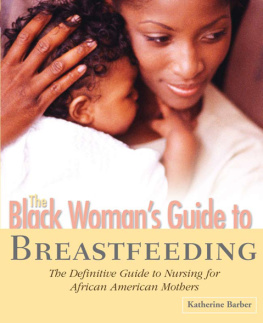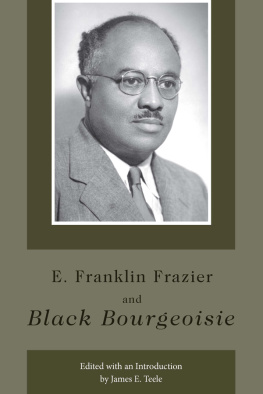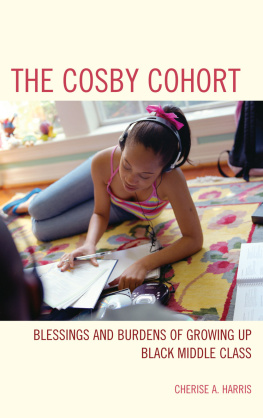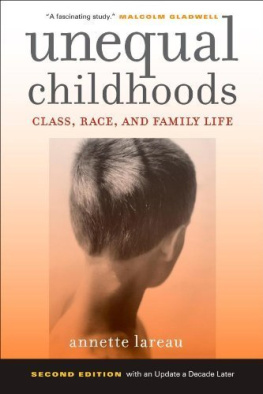The publisher and the University of California Press Foundation gratefully acknowledge the generous support of the George Gund Foundation Imprint in African American Studies.
University of California Press, one of the most distinguished university presses in the United States, enriches lives around the world by advancing scholarship in the humanities, social sciences, and natural sciences. Its activities are supported by the UC Press Foundation and by philanthropic contributions from individuals and institutions. For more information, visit www.ucpress.edu.
University of California Press
Oakland, California
2019 by Dawn Marie Dow
Library of Congress Cataloging-in-Publication Data
Names: Dow, Dawn Marie, author.
Title: Mothering while black : boundaries and burdens of middle-class parenthood / Dawn Marie Dow.
Description: Oakland, California : University of California Press, [2019] | Includes bibliographical references and index. |
Identifiers: LCCN 2018039768 (print) | LCCN 2018042495 (ebook) | ISBN 9780520971776 (ebook) | ISBN 9780520300316 (cloth : alk. paper) | ISBN 9780520300323 (paperback)
Subjects: LCSH : African American mothersSocial conditions. | ParentingSocial aspects. | Middle class African AmericansFamily relationships. | Intersectionality (Sociology)
Classification: LCC HQ 759 (ebook) | LCC HQ 759 .D685 2019 (print) | DDC 306.874/30896073dc23
LC record available at https://lccn.loc.gov/2018039768
Manufactured in the United States of America
26 25 24 23 22 21 20 19
10 9 8 7 6 5 4 3 2 1
Acknowledgments
I did not write this book alone. An undeniable truth is that, although writing may, at times, be a solitary process, completing a project of this scope cannot be accomplished without the invisible labor of others. I sincerely appreciate the community of scholars, friends, and family who provided emotional, intellectual, and practical support throughout my research and writing. Without their assistance and belief in me, their respect for me as a scholar, and their appreciation of me as a person with non-academic demands in the larger world, this book would have been a much more difficult, if not impossible, task to complete.
I owe a special note of gratitude to every person who participated in this research. I thank them for taking time away from their families and jobs to open up to me about parts of their lives. They carved out time after bedtime, during outings to the park with their children, and during their lunchtime to share their beliefs and experiences about work, family, and parenting. Whenever I have given presentations about this research at conferences, African American women, men, mothers, fathers, sons, and daughters have approached me to tell me how these findings resonate with their personal experiences. Daughters have told me how their mothers worked to cultivate their self-esteem and self-reliance. Sons have said, My mother tells me to do the things you describe, but I still get hassled. Some people have approached me to explain where they think they fit into the categories that emerged in this research. African American mothers have told me how they appreciated hearing a version of motherhood that more closely matched their own experiences. I feel privileged to be the person with whom my study participants shared their perspectives and, thus, enabled the individuals I described above to see versions of themselves in sociological research. I hope other scholars continue to examine the complexity of the experiences and perspectives of African American mothers and other mothers of color from a range of socioeconomic positions and determine how they may or may not fit into existing analytical boxes. As novelist Chimamanda Ngozi Adichie asserts, there is danger in a single story.
Like many first-time academic book writers, I used my dissertation as the initial draft of this manuscript. At the University of California, Berkeley, Raka Ray was my dissertation chair, and from the beginning, she believed in this project. Raka encouraged me to show how my research not only diversified what we know about work, family, and parenting by giving voice to the experiences of African American middle-class mothers, but also how it challenged fundamental assumptions within family and work scholarship and demanded that we deconstruct and unmake the categories of mother and worker. Throughout this process, Raka showed me that she cared about my intellectual and professional development and my nonacademic life (knowing these parts of life can hardly be separated from each other). She also encouraged me to develop my voice as both an academic scholar and a public sociologist who shares her research with audiences outside of traditional academic circles.
Barrie Thorne and Evelyn Nakano Glenn also provided invaluable feedback that strengthened the analysis in this book. Barrie pushed me to explore the complexity of the lives of the mothers I studied. She also encouraged me to honor their shared and divergent experiences and to be precise in the concepts I was using to describe them. I thank Evelyn Nakano Glenn for her contributions to the intellectual foundations of this research. Her research on mothering greatly informs this work. Evelyn pushed me to consider how changing social constraints and opportunities shape the life trajectories and expectations of mothers.
In Raka Rays dissertation writing group I regularly circulated early- and later-stage parts of this research that were carefully read and critiqued by a group of intellectual powerhouses that included Nazanin Shahkokni, Sarah Anne Minkin, Jordana Matlon, Kate Mason, Kate Maich, Kimberley Kay Hoang, Katie Hasson, Jennifer Dawn Carlson, Oluwakemi Balogun, and Abigail Andrews. I owe a special debt of gratitude to these amazing women for the close attention they paid to my research, which enhanced my empirical and theoretical analysis.
While at the University of California, Berkeley, I was a graduate fellow at the Institute for the Study of Societal Issues (ISSI). Through the Graduate Fellows Program, I had the opportunity to benefit from the wisdom and expertise of its three program directors, my cohort of fellows, and alumni from the program. David Minkus and Deborah Lustig deserve special thanks. They carefully read parts of this manuscript, provided critical feedback, and pushed me to sharpen my analysis and conceptual categories. Christine Trost read early versions of chapters and was extremely generous and honest with her feedback. I also thank my cohort of fellows: Willow Amam, Lindsey Dillon, Naomi Hsu, Nicole Lindahl, Karin Martin, Alina Polyakova, and Nu-Anh Tran. This interdisciplinary group of scholars helped to ensure that my findings remained clear and accessible to a broad range of academic and nonacademic audiences.
I benefited from workshopping parts of this manuscript in several formally organized groups. The research was enhanced by the feedback that I received from members of the Sociology Departments Gender Workshop and the Interdisciplinary Family Working Group, both at the University of California, Berkeley. At Syracuse University, I gained valuable input from members of the Moynihan Faculty Workshop. In addition to these formal groups, I am grateful to have participated in several writing groups throughout the time I wrote this book. I am thankful to have been invited to participate in a writing and dissertation support group with Siri Colom, Sarah Gilman, Katie Hasson, Silvia Pasquetti, and Gretchen Purser. These scholars read over parts of the manuscript and provided me with constant encouragement and emotional support as we discussed our research late into the evening over cups of coffee or glasses of wine. The feedback I received from these formally and informally organized groups added layers of complexity to my research. Katie Hasson deserves special recognition. She has been a loyal friend, and I have benefitted enormously from her scholarly brilliance over the years. Our regular writing dates and writing retreats and our discussions about academia and life more generally have sustained me over the years. I will always be grateful for the gift of her friendship and her encouragement to celebrate the milestones and engage in radical self-care.








